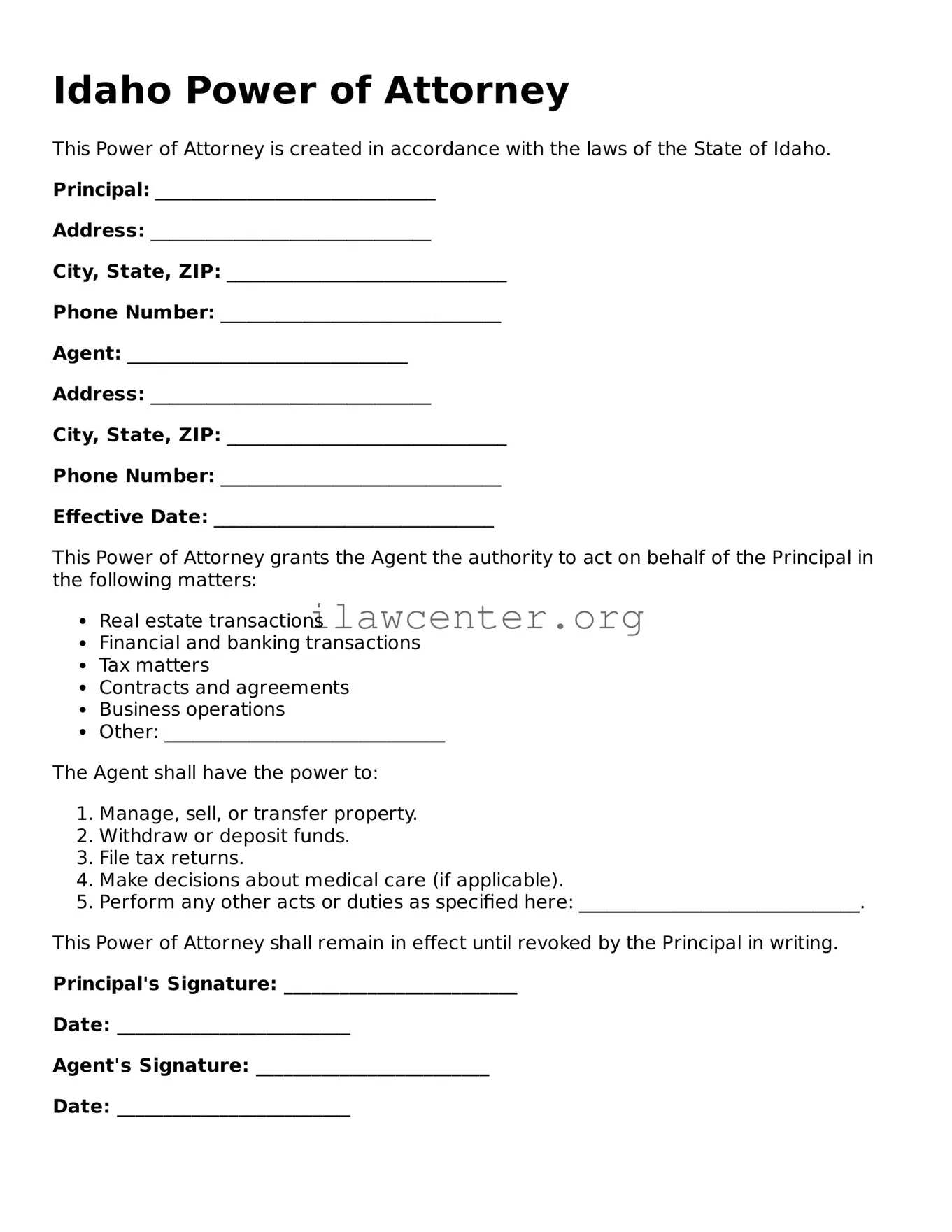Filling out a Power of Attorney (POA) form is a significant task that can empower someone to make decisions on your behalf. In Idaho, people often make mistakes when completing this document, which can lead to complications down the line. Understanding common pitfalls can help ensure that your POA is both valid and effective.
One mistake frequently encountered is failing to specify the powers granted. If you leave this section ambiguous, it may lead to uncertainty about the extent of authority given to your agent. Clearly defining the powers you wish to grant is essential. Consider stating whether your agent can manage finances, make healthcare decisions, or handle real estate transactions.
Another common error is forgetting to date the form. Without a date, it can be unclear when the powers were granted. This lack of timestamp could lead to confusion, especially if the form is scrutinized in the future. Always remember to add the date when the document is finally completed and signed.
Many also overlook the need for signatures. In Idaho, both the principal (the person granting the power) and the agent must sign the document to make it legally binding. Neglecting to secure either signature can invalidate the POA, rendering it useless. Ensure that all required parties review and sign the document.
Another mistake lies in not having the form notarized. Although not always mandatory, a notarized signature adds an extra layer of credibility to the document. It can help prevent potential disputes over the authenticity of the POA. If you are unsure whether notarization is necessary, consider consulting with a legal professional for guidance.
People also tend to ignore the importance of selecting a trustworthy agent. Choosing someone who may not have your best interests in mind can lead to devastating consequences. Thoroughly evaluate potential agents based on their reliability, honesty, and willingness to act in your best interest.
Misunderstanding the duration of the POA is another common issue. In Idaho, you can create a temporary or durable Power of Attorney. A temporary POA will expire after a specified time, while a durable one remains effective even if the principal becomes incapacitated. Make sure you know which type best suits your needs and clearly indicate it in the document.
Completing the form without consulting others can also lead to errors. Not discussing your choices with family or trusted friends might result in misunderstandings or conflict later. Involve loved ones in the decision-making process to ensure everyone understands the powers granted and the intentions behind them.
Not keeping copies of the completed POA is another common oversight. After signing and finalizing the document, it is crucial to retain copies for yourself, your agent, and any relevant institutions. This practice ensures that everyone involved has access to the same information and can act accordingly.
Lastly, one of the most overlooked mistakes is failing to review the document periodically. Life circumstances change. It’s important to revisit your Power of Attorney to ensure it still aligns with your current wishes and needs. Set reminders to review the document regularly or whenever you experience significant life events.
